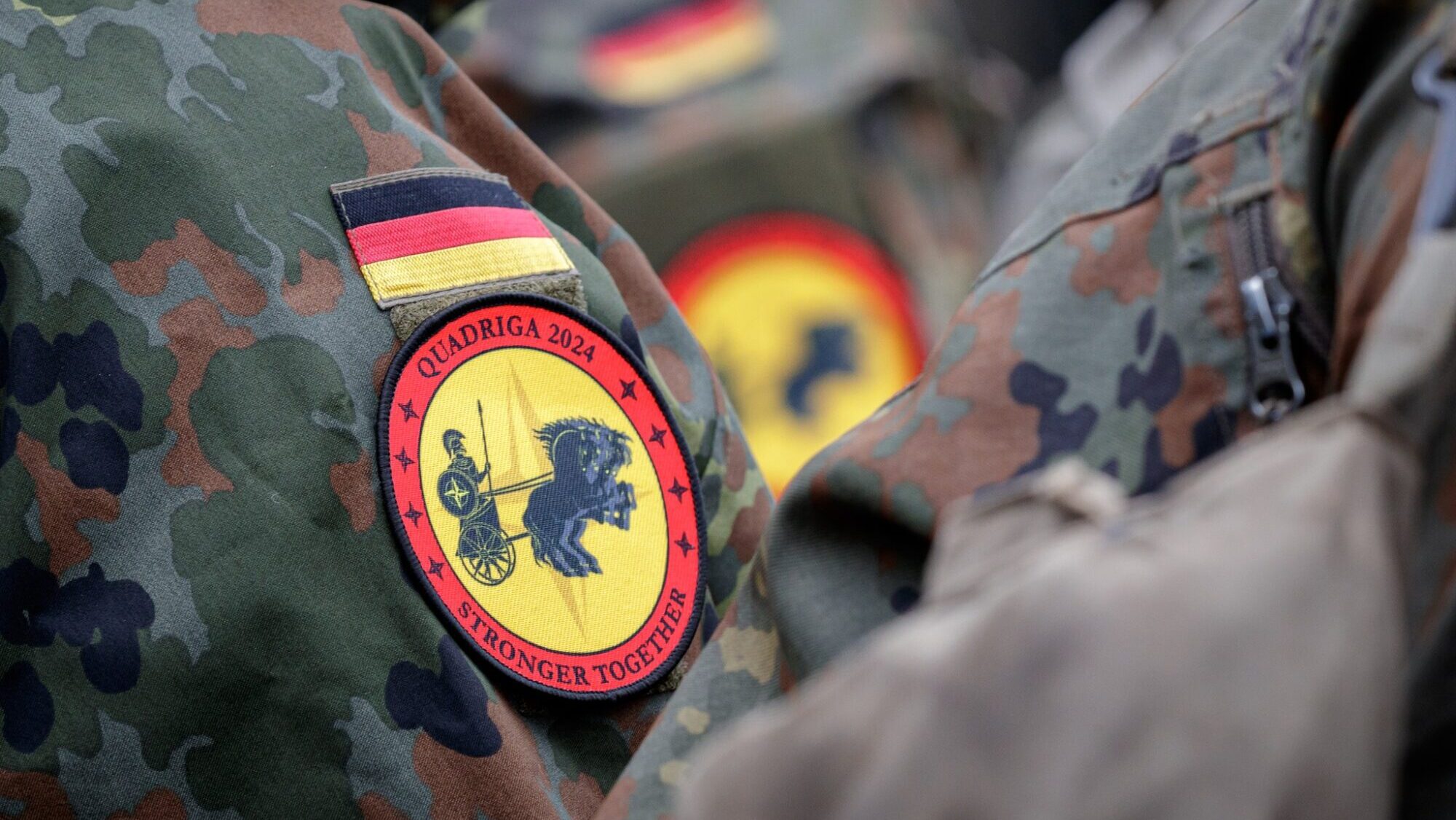
Photo: Bundeswehr on Facebook, 15 April, 2024
Germany’s largest opposition and most popular party, the center-right CDU/CSU alliance, has voted to put mandatory military service back on its agenda during their party congress, promising to reintroduce it once it retakes power in Berlin. The announcement comes only days after Manfred Weber, president of the CDU-dominated European People’s Party (EPP) floated the idea of introducing an EU-wide draft as well as equipping Brussels with its own nuclear deterrence capabilities.
Until 2011, Germany used to have a selective service, allowing 18-year-olds to choose between spending one year in the military or in the social sector.
Considering the lack of personnel in the Bundeswehr as well as the geopolitical circumstances the war in Ukraine created, CDU officially aims to reintroduce the system as an intermediary step before shifting to a general draft sometime in the future, Deutsche Welle reported.
The governing social democrats (SPD) have so far avoided picking sides for certain out of fear of losing even more votes during June’s EU election. Still, Defense Minister Boris Pistorius has implied several times that there might be no other options, promising only to make an official recommendation in the summer (i.e., after the election).
Reportedly, Pistorius is considering a system based on the Swedish model that’s a lot softer than what CDU has in mind. The Swedish draft law, reintroduced in 2017 in response to the war in East Ukraine, only makes a medical examination compulsory for 18-year-olds of both genders, but keeps the actual conscription voluntary, yielding 5-10% of the pool each year.
Similar partial conscription models are in place in Denmark, Norway, and the Baltic countries, while Austria, Switzerland, Finland, and Greece have active general conscription, though all of them offer some forms of alternative (social) service—similar to the CDU’s preferred approach.
Germany is not the only country considering reinstating the draft in Europe, and the whole debate may also need to be addressed centrally, at the EU level, as many in Brussels, including the EPP chief, believe.
Discussing the EPP’s EU election program in an interview with BR24, Manfred Weber once again argued for further centralization of European defense policies. Weber said he was a strong supporter of general service for Europe, but the choice for social sector alternatives must also be offered to young people.
Furthermore, Weber also reiterated his call for building an EU-wide nuclear shield, as in equipping Brussels with its very own nuclear arsenal. “We need a European nuclear weapon,” Weber said firmly.
In the past, France’s Emmanual Macron has repeatedly offered a portion of its nuclear arsenal to serve as a central deterrence protecting the entire bloc, but Chancellor Olaf Scholz’s socialist government has been reluctant to accept, in part because that would inevitably make Paris the de facto military leader of Europe.However, Weber said he was “disappointed” that Berlin refused to entertain the proposal, adding that it urgently needs to be revisited, along with all the other proposals for more centralized “European defense structures”—a clear precursor of a future EU army.
